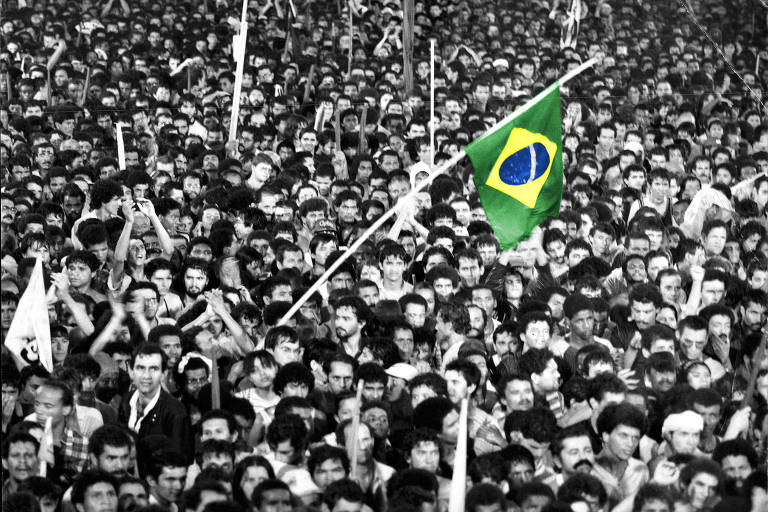When Folha took over the movement for direct elections in November 1983, the newspaper took a decisive step in an editorial reorientation process that had begun in 1974. That year marked the beginning of General Ernesto Geisel's government.
After expressing support for the 1964 coup, alongside the country's main media outlets, broad sectors of the middle classes, and business leaders, the newspaper had emerged from the dark and silent years of General Garrastazu Médici with a different position. Now it was inclined to bet on Geisel's nods and General Golbery do Couto e Silva with a view to a slow and gradual easing of the military regime.
When Folha's publisher, Octávio Frias de Oliveira was invited by the then Chief of Staff to a meeting in Rio, before Geisel took office, he personally heard from the strategist general that a reopening process was on the agenda and that Folha would have a role to play in the diversification of the São Paulo press scene.
Frias saw in Golbery's hint an opportunity for the newspaper, which had its finances in order and a respectable readership, but did not measure in prestige with the local competitor, the daily “O Estado de S. Paulo.”
An intense process of internal discussion opened up within the newspaper. The publisher, his son Octavio and journalists Cláudio Abramo and Boris Casoy especially, decided to invest in a type of journalism to debate themes that would build up Folha's prestige. These themes would position it as an interlocutor of the yearnings for modernization and redemocratization manifested in society.
A year later, in October 1975, this new journalistic face of Folha appeared in the coverage of the murder of Vladimir Herzog, who was arrested, tortured, and killed in the DOI-Codi dependencies of the Second Army. Folha covered the murder and the interfaith funeral that took place at the Catedral da Sé in São Paulo, in memory of the then director of journalism TV Cultura.
After that, Folha expanded the coverage of political movements, hired renowned journalists and writers who opposed the dictatorship, and started to gain unprecedented prestige among civil society. At the same time, it became the target of the regime's concerns and threats. It was a victim of censorship when columnist Lourenço Diaferia was arrested in 1977.
Therefore, adherence to Diretas Já was a natural consequence of a trajectory that had already been renewed. "Things started to define themselves in the sense that the newspaper would have to have a more doctrinal than tactical position," declared Otavio Frias Filho in a lengthy interview with the magazine "Lua Nova" in September 1984.
Otavio, who had replaced Casoy in the editorial direction in May 1984, was the author of the editorial project entitled “Folha after the direct elections-already campaign,” published that year. The project consolidated principles outlined in previous documents, and those principles still guide the newspaper in the practice of critical, pluralist, non-partisan, and modern journalism.
The text recognized the campaign's prominent role, despite the defeat of the amendment in Congress, both in terms of the credibility obtained by Folha and the unprecedented internal mobilization it had provided.
